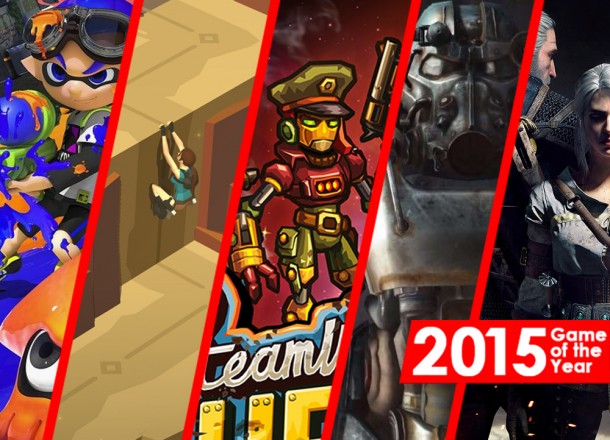
Following in the steps of SideQuesting’s 2014 Game of the Year coverage, we’re again not hosting a definitive Game of the Year for the site, instead focusing on the individual writers and their favorites. Hopefully, you’ll be able to connect a little better with the writers that make up this little corner of the web, as many of us will be posting our Top 5 lists throughout the next week. Enjoy, and bring on 2016!
What an awesome year it was for gaming. Even after several of my most anticipated games were delayed into the next year, 2015 delivered not only some great surprises but also possibly some of my favorite games of this generation.
SteamWorld Heist
Charming. That’s the easiest way to explain Image & Form’s SteamWorld Heist. As a continuation of the terrific post-apocalyptic steampunk IP that its predecessor Dig set up, just the existence of Heist is a win for gaming. It’s beautifully rendered with often sublime art direction and audio, and its characters and worlds are memorable, much like Saturday morning cartoons.
But even with just that top level of gloss, the game still has a turn-based 2D tactical/strategy game play mechanism behind it that makes for an enjoyable experience. It’s very easy to pick up and play, but just as easy to get lost in. And hey, it’s a lot of fun.
The Witcher 3
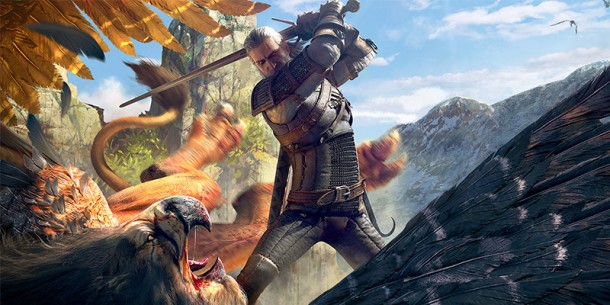
When 2015 rolled into view, I had known about the Witcher series for some time — my PC gaming friends had been enjoying it for years — and I even bought Witcher 2 for the Xbox 360, only to subsequently drop it onto my backlog pile unopened, where it remains today. I tend to get caught up in the hype of big game launches, buying new games and rarely playing much of them. I even had a feeling I would do the same with this newest edition, saving a spot for it on the shelf next to its predecessor.
Thankfully, that didn’t happen.
As it booted up, I was almost immediately entrapped by the beauty and luster of the game’s environments, pausing to stare at some vista or into the face and eyes of my partner. The mature storytelling is gripping, with what feels like genuine human emotion at the center of my decisions and a plot that seems to build to several terrific climaxes along its path. The Witcher doesn’t feel like a game, it feels like an odyssean journey that forces me to pick myself up when some insurmountable task presents itself. That alone is enough to mesmerize me, to keep me coming back like the call of a siren.
I have a feeling the Witcher 3 will never make it to that backlog. I’m kind of okay with that.
Lara Croft GO
Can a mobile game be considered “Triple-A”? I had that conversation with a friend a while back, and his reasoning was that due to control limitations, visual constraints and processor power, the best we could ever get would be a flashy Candy Crush. Though I felt that there *could* be a blockbuster experience for mobile platforms, I had a hard time trying to name one.
Then Lara Croft GO entered my life, and my paradigm was shifted.
You see, LCGO isn’t divinely designed — its visuals are gorgeous, it’s controls are spot on, and it flows like butter on any of my iOS devices — it’s absolutely a blast to play, challenging me for hours on end until I’ve run the battery all the way to 0%. The isometric viewpoint reveals wonderful world design, pulling me in and igniting the exploration torch in my head that is usually reserved for Hyrule. I want to go deeper into the cave, each time, and put myself in harm’s way.
In the end Lara Croft GO does something that other Triple-A games don’t, and that is to keep me so engaged that “just one more level” becomes “one more day” very quickly. Lara had a great 2015 indeed.
Fallout 4
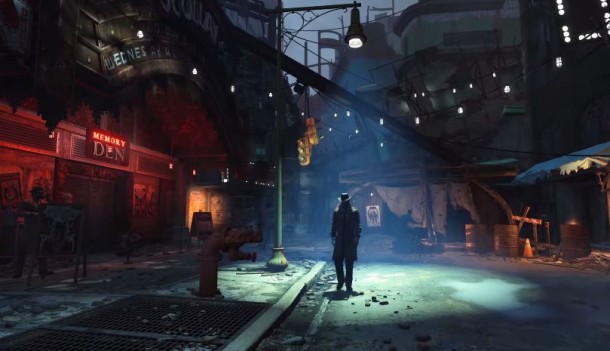
“If it wasn’t for the Xbox One’s backwards compatibility, I wouldn’t even be here.”
That phrase should go on a shirt. I had Fallout 3 sitting on my backlog for years, barely even half-completed before it began collecting dust. I hadn’t been tempted to go back to the wasteland since then, but when the XBone allowed the game to become playable on modern consoles in November, I dropped it in and was immediately irradiated by its scale, charmed by its characters, and amazed at its design.
It was natural to jump into Fallout 4 after that, as everything from that previous experience was ratcheted up to eleven. F4 isn’t as original an experience as its older gen sibling, but it shines in ways that can be difficult for modern games that are wrapped up in the glitz and glamour of a new console cycle. Yes, the game is pretty (if a tad bit aged) and yes the game is huge, but it’s also seeded in choice and circumstance, of which seem to mount against our favor at every angle.
I never know what my choices will lead to — will I inadvertently destroy a friend? Will my town falter if I’m taking on too many side missions? Will I even forget What my missions are? That’s further reflected in its grand scale and size; typically epic games don’t keep my interest for too long (I simply don’t have the time any more to traverse open worlds), but the Fallout is pulling me into its world every week, calling to me to pick up the controller again like the song of a mutated siren.
Splatoon
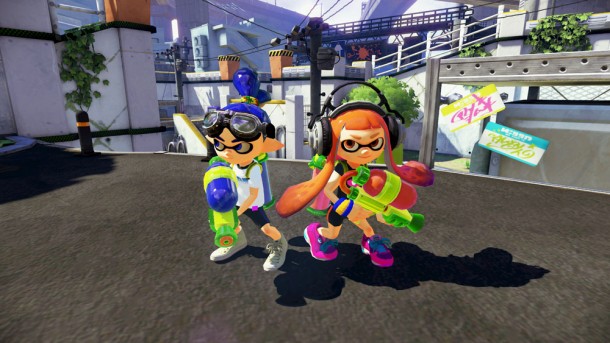
It seems to always work out. Nintendo sees a popular genre, puts its own spin on it, and creates a memorable experience that puts it alongside the upper echelon of category’s developers. It happened with racing games and fighting games, party games and sports. And now with competitive shooters.
Splatoon is a true joy, both in quirky design cues and in fun competition, that transcends to the top of this new generation of console games. It’s refreshing that Nintendo has taken the inherent violent nature of shooting something at someone and reverted it to playground-level ideas. (In this case, it’s pretty ink that we actually don’t mind getting covered in.) In fact, the entire game feels like a school yard water balloon fight with everyone happily getting wet, tons of giggling and laughter, and the desire to want to play again the very next day.
And now just writing about it I want to play it. Again.
Be Right Back.

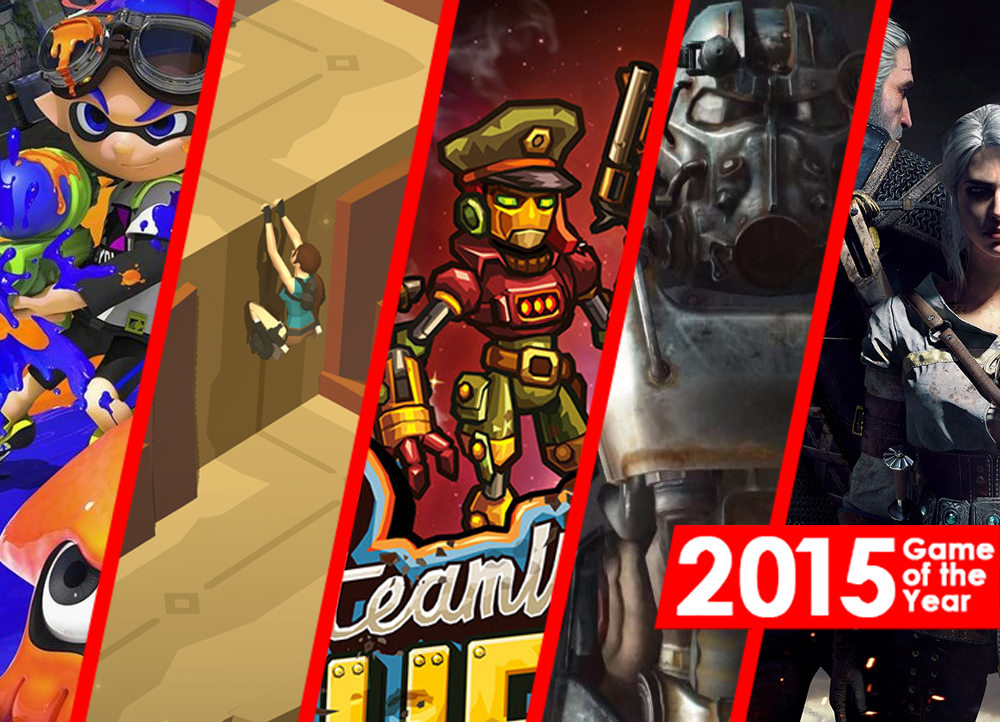
No Comments